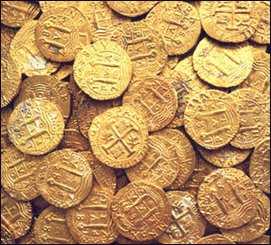Related Topics
Investing, Philadelphia Style
Land ownership once was the only practical form of savings, until banking matured in the mid-19th century. Philadelphia took an early lead in what is now called investment and still defines a certain style of it.
Whither, Federal Reserve? (1) Before Our Crash
The Federal Reserve seems to be a big black box, containing magic. In fact, its high-wire acrobatics must not be allowed to fail. Nevertheless, it may be time to consider revising or replacing it.
Philadelphia Economics
economics
Personal Finance
The rules of financial health are simple, but remarkably hard to follow. Be frugal in order to save, use your savings to buy the whole market not parts of it, if this system ain't broke, don't fix it. And don't underestimate your longevity.
Philadelphia's Fourth Century: Revival or Relapse?
Novelists, sociologists, playwrights, financiers, historians, poets -- and others -- have described and explained the rise and fall of Philadelphia. Each of them is a little bit right, and a little wrong. Philadelphia is hidden, but it isn't hiding.
Immigration

|
| Gold |
We're alluding indirectly to immigration as a general topic in this article because sooner or later every discussion of every aspect of immigration adds a claim of "fairness" to the balance. In this case, plain talk about fleecing peasants first requires the definition of an unfamiliar term. Seigniorage, also spelled seignorage, or seigneurage, originally only denoted a fee which governments charged for milling coins out of precious metal. Developing nations often didn't have the necessary technology, so they paid some other country to do it for them. That was fair enough, but soon "trimmers" would shave the side or surface of coins and gather up the dust for sale. That practice led to clever serration of the formerly flat edges, much simpler than weighing coins to detect cheats.
In time, improved printing techniques allowed governments to keep precious metal in vaults and issue paper currency, some of which inevitably got burned, shredded or lost. Since the issuing government could then keep the whole value of lost currency minus printing costs for itself, the term seigniorage evolved to include this more lucrative method for governments to cheat citizens, abusing their monopoly on the currency issue. There might seem to be some temptation for governments to print money on fragile paper, except it is overbalanced by the need to make it hard to counterfeit. Happily, this sort of seigniorage always seemed less offensive because everybody agrees that if you have money in your pocket, shame on you if you lose it. As transactions become more sophisticated, however, some innovative modern arrangements which loosely fit the definition of seigniorage become a new source of moral dismay. One facet of currency razzle dazzle concerns immigration, which is itself always a contentious matter.

|
| Spanish |
Right now, it is authoritatively estimated that the Social Security program has collected half a trillion dollars in Social Security and Medicare taxes, whose rightful owner is impossible to determine. Some of the beneficiaries may have died without claiming the money, so some of this topic might be classified as escheat, or abandoned by the owner. But very likely the bulk of this money, under modern circumstances, was withheld from illegal immigrants by their employers, either without their knowledge or using counterfeit social security numbers; and the fugitive status of the owners made them reluctant to claim it. Half a trillion is five hundred billion dollars.
This sort of discovery leads to some troublesome thoughts. If the immigrants are legal, or if now illegal may receive amnesty, they will be fully eligible for social security benefits. You might say they earned such benefits, but our tormented public pension system is in fact almost entirely funded by one generation funding its parents' generation. That borrowing between generations means paying for it later, so of course, it enjoys the politician spin-term of "pay as you go". An American of multi-generational descent has paid for his parents while he works and expects to have his own pension paid for by his children. An immigrant, never mind his citizenship, is paying the same taxes, but has no parents as beneficiaries. When the newcomer retires he may be a burden to his children like the rest of us, but his current payments go into the black hole of government deficits without paying for any parents. Here we have seigniorage on a much grander scale. The money presently diverted from the usual channels by this ingenious arrangement is calculated to be two trillion dollars, or four times as much as the paper money seigniorage, and many many times as much as the shaved-coins scam. Just for comparison, consider that America is estimated to have 900 billionaires. Their aggregate net worth is probably only slightly greater than the amount our government garners from illegal immigrants.
The matter really does seem to be important enough for us to learn how to spell seigniorage, and even reconsider whether to apply the term to its most popular current manifestation.
Originally published: Friday, June 08, 2007; most-recently modified: Sunday, July 21, 2019
| Posted by: Peter Rudd | Aug 25, 2010 3:26 AM |
| Posted by: Peter Rudd | Aug 25, 2010 3:24 AM |
<a href="http://1stcarrental.com">Peter Rudd</a>